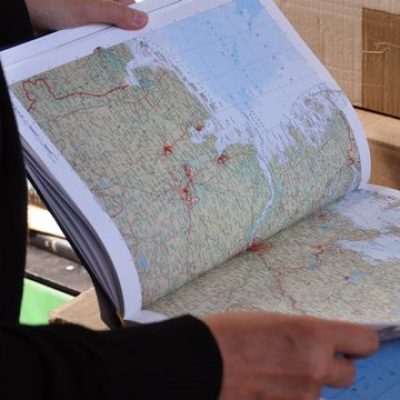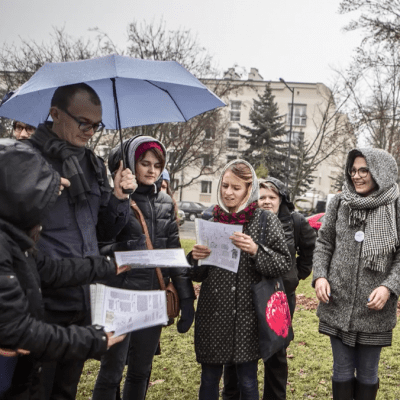Article
In a June 20, 1994 article in The Independent, Dr. Robert Fisk described the systematic destruction of the architectural and cultural heritage of Bosnia and Herzegovina as “a cultural catastrophe for Europe.” Churches, mosques, monasteries, and libraries were razed to the ground during the bitter civil war that followed the breakup of Yugoslavia.
The Oriental Institute was among the institutions that were destroyed, with its priceless collection of Jewish and Islamic manuscripts and the National and University Library of Sarajevo.
On August 26, 1992, Serbian forces targeted the National Library and around two million publications and more than six thousand invaluable and extremely rare manuscripts, books, and documents were completely destroyed in the fire. Many still consider this to be the largest single act of book burning in modern history. Vijecnica’s destruction was not only an enormous loss to Bosnia and Herzegovina, but it is undoubtedly a war crime, as defined by the Hague Convention of 1954, which states that the deliberate destruction of cultural monuments is a war crime.
Dr. Robert Fisk described the destruction of the architectural and cultural heritage of Bosnia and Herzegovina as “a cultural catastrophe for Europe.”
The National Library, also known as the Vijecnica, houses invaluable collections brought together in 1945 from a number of older institutions throughout the city of Sarajevo.
While many of the University of Sarajevo students are too young to remember when the Vijecnica was destroyed, they live with its consequences today. Currently, these university students do not have a research library that is central to the normal academic and research life of university students. Senior Fellow Jasmin Hasić found this unacceptable, and he wanted to assist in restocking the library funds at the National and University Library in Sarajevo.
Jasmin worked primarily with Elma Mahmutovic-Hodzic and Dajana Dzindo, Senior Fellows from Bosnia and Herzegovina. Jasmin and his team created a database of potential donors, including European and American universities, and began by contacting each by email. The project welcomed donations of works in all disciplines – from the sciences to the humanities – in any of the major European languages. The organizers originally sought two books from each institution, with one in the native language of the donor and unique to the institution or country.
Books4Vijecnica is primarily aimed at assisting the current and future students of the University of Sarajevo through the restocking of the library with a quality and up-to-date book collection comparable to European universities of similar size.
Jasmin and his team are currently developing the next stage of the project. In cooperation with the Genealogical Society of Ireland, Books4Vijecnica will seek advice, assistance, and support from the European Union to provide for the effective promotion and administration of an enhanced project and for the commissioning of two feasibility studies to facilitate the planning and further development of the academic profile of the University of Sarajevo.







